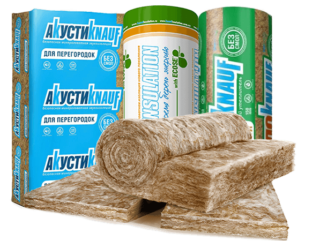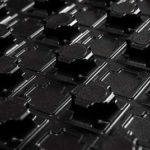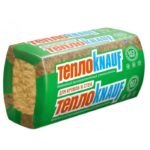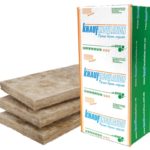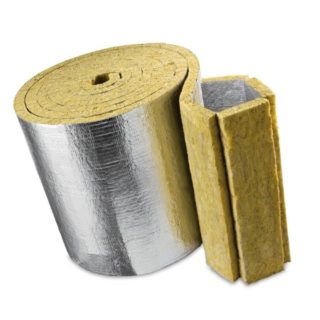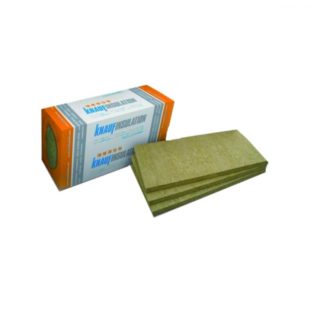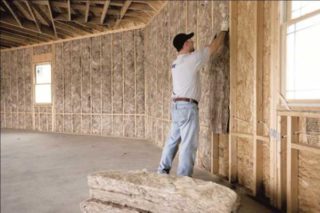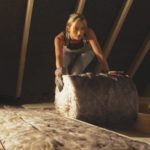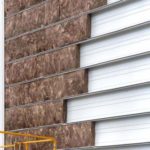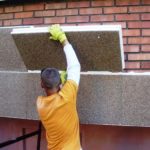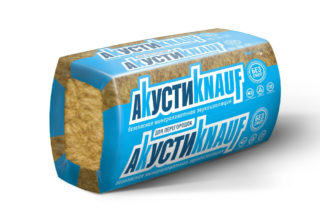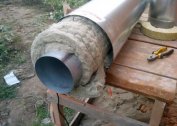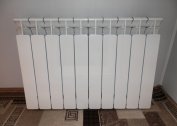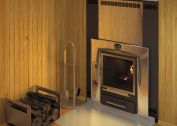The construction of residential and utility buildings is impossible without insulation. The indoor microclimate, the degree of sound insulation, as well as energy conservation indicators depend on it. Knauf insulation from a famous German brand is considered one of the most popular due to its high quality, environmental friendliness and safety. The manufacturer offers a wide range of materials designed for any needs in the construction industry, in the construction or repair of houses and summer cottages. Each has its own characteristics that must be considered when choosing.
Brief information about the Knauf brand
The Knauf brand was created in Germany and has existed since 1932. Once the company mainly produced gypsum plaster, but very soon it began to expand its product list. In 1947, a plant was opened in Bavaria, where they began to make gypsum-based building mixes, and in 1958 they launched the production of drywall sheets.
After the 70s, the scope of the company expanded significantly. First, construction mixtures made of cement appeared on the market, then construction chemistry, as well as a variety of structural details, thermal insulation based on mineral wool in combination with polystyrene. The brand’s products were first sold on the Russian market in 1993, after 10 years the first Knauf enterprises opened here.
Known types and features of heaters
Thermal insulation and various heaters from Knauf are presented in a large assortment. The most popular product was plates made of mineral wool and expanded polystyrene. Minvata Knauf is either glass or basalt, is available in the form of plates, mats or rolls to enhance operation and practical installation. Roll material is excellent for mounting horizontal surfaces, while the plates are more flexible and weigh much less when compared to mats. Insulation materials are divided into two types, depending on the installation method: glued to the base and for fixing under the frames.
Materials can be used for insulation inside and out, taking into account their type and purpose. In the range from Knauf, materials for ceilings, floors and walls are available. There are options for insulation of facade thermal insulation, installation of floors, roofs, roofs, basement compartments and basements. Products for ventilated and non-ventilated facades, options for hinged systems or plaster.
The company produces three lines of materials:
- HeatKnauf. This line is designed primarily for private buildings and contains insulators of roll type, suitable for walls, partitions inside and roofs, as well as ceilings. Teploknauf insulation is divided into three types: Cottage, Teplodom and Cottage.
- Insulation. A group of these products was created for the decoration of large building structures, for example, shopping centers, hotels, schools, hospitals or clubs. The Insulation line includes Thermo-roll insulation, as well as Thermo-plate, Acoustic, Knauf series Pitched Roof, Ecoroll and Knauf ecos.
- Knauf Therm. This includes materials for the insulation of ceilings, floors, walls, as well as facades. Thermo-plates are divided into several varieties, each of them has its own characteristics and purpose. The range consists of three types: Knauf Therm facade, Knauf Therm Floor, as well as Knauf Therm Roof.
- Knauf Therm for underfloor heating
- Roll series Teploknauf
- Materials for industrial insulation
All heaters of the brand, regardless of type, have a minimum life of 50 years, are characterized by impeccable technical characteristics, convenience and reliability during operation.
Different types of cotton wool
One of the most demanded materials of the company became stone or basalt cotton wool. In the process of its production basaltic rocks of mineral type are used, remelting lava stones and adding to them astringent components with additional chemical elements that bind the fibers. Finished fibers are solid rolls or slabs. Knauf mineral wool does not contain phenol resin, formaldehyde and other harmful substances, it is non-toxic and not hazardous to health, does not emit dust during installation of mineral wool and does not require protection for the respiratory tract.
The brand's basalt cotton wool has impeccable characteristics: it is able to withstand temperature changes, does not change shape and is not exposed to fire. The level of its thermal conductivity is 0.035-0.4 W / m, indications of water absorption - 1-2% of the total volume. The density of the material always depends on its type. The company offers several varieties of mineral wool designed for walls, roofing and other elements.
Choosing the right type of mineral or glass wool from Knauf is necessary taking into account construction needs and specific goals. Cost will depend on the size, quantity and type of material.
Mineral plates
Mineral wool from Knauf, whose technical specifications comply with European standards, is produced only in the form of plates. This is a good choice for the thermal insulation of summer cottages and private houses, therefore it is precisely it that is mainly chosen for construction work. The stoves have a minimum level of thermal conductivity, so they are able to create the perfect microclimate in each room, as well as reduce the cost of heat consumption. They absorb sounds and can be used for noise isolation.
Knauf insulation in the form of mineral plates is a non-combustible material with a good level of fire resistance. Plates are lightweight and do not create an unnecessary load on the floor structure. They do not shrink and are able to maintain their original form even after the full expiration date, which is 50 years. The density of the miniplates is ideal for insulation inside and out. Their installation does not cause difficulties even for beginners, the technology is as simple and straightforward as possible. The material contains no toxic substances and dyes, it is safe and environmentally friendly.
TeploKnauf
Insulators of this type are made mainly for private houses, they are classified as a roll type and are chosen for mounting ceilings, roofs, walls and partitions inside houses. Roll insulation from Knauf is divided into three types: “Cottage”, “Cottage” and “Teplodom”. The materials of the Dacha series have a web thickness of not more than 50 mm and are suitable for installation in seasonal homes. Option Knauf Cottage has a high level of thermal insulation, maximum protection against humidity and noise. Sheets of the Teplodom series have a thickness of 50 to 100 mm and extremely high thermal savings. They are released in standard and mini format.
Knauf insulation
The Insulation line includes materials designed for the largest construction projects: shopping centers, clubs, schools, hotels and hospitals. This is the best choice for those who need the maximum amount of material for hundreds and thousands of square meters. The group of heaters of this type includes the categories “Acoustic”, Eco and Thermo Roll, Thermo Plate, Pitched Roof and Knauf Ecos.
Purpose of thermal insulation materials
On sale are a range of heaters, among which you can find options for installing a roof, floor, facade and ceiling.
For walls
For exterior walls, Thermo Plates 037 from the Insulation line, which have ideal insulation properties, are most often used. They are used to preserve heat in rooms, as well as additional sound insulation. Another good option is Acoustic partitions, mainly used in frame construction. They fit easily inside sandwich panels. Often, experts use mineral wool TeploKnauf standard type or intended for cottages. It is convenient to use and does not cause installation difficulties.
For the floor
You can choose a floor insulation from Knauf among the materials from the Insulation line. Experts recommend the use of Thermo Plates 037, they help insulate floor ceilings and maintain the optimal level of heat in the room. Semi-rigid mats Thermo Roll 040 and slabs from the Pitched Roof series, designed for attic floors, are also suitable for flooring.
For the roof
Mats and slabs from the “Pitched Roof” series are designed specifically for pitched roofs made of wood. Builders use Thermo Roll 037 and Thermo Plate 034 of the desired length, width and thickness. For cottages and country houses, it is better to choose mineral wool boards from the Dacha series, which are produced in the form of rolls.
For the facade
The manufacturer provides several types of insulation for walls. The special “Facade” series is designed for finishing internal brick walls, it includes plates with a good level of elasticity, which practically do not absorb moisture. The material of the series is suitable for any buildings with walls that have a multilayer structure. Walls can be insulated with the help of mineral wool from the TeploKnauf line, which is used for facade work and thermal insulation of partitions.
- Thermo Roll for the floor
- Wall-mounted insulation
- Facade insulation
Advantages of Knauf insulation
All brand insulation materials are manufactured using special Ecorse technology developed in a separate division of Knauf Insulation. Thanks to this system, the company's materials have a high level of safety and environmental friendliness. In the manufacture of plates and rolls, only natural components are used without the addition of formaldehydes and other hazardous substances. Each insulation meets international quality standards and is completely safe for humans and the environment. The list of the main advantages of the company's products includes:
- maximum durability and strength;
- good indicators of thermal and sound insulation;
- low thermal conductivity, due to which a high level of insulation is provided;
- fire resistance;
- resistance to moisture, mold and rot due to high density;
- simplicity and ease of use;
- light weight and no transportation problems;
- biological stability and protection against rodents and insects;
- soft texture, easy cutting;
- lack of unpleasant odors;
- vapor permeability.
The brand's insulation is thought out to the smallest detail and meets the requirements for this category of materials. They have practically no cons except for the high cost compared to analogues of other brands.
